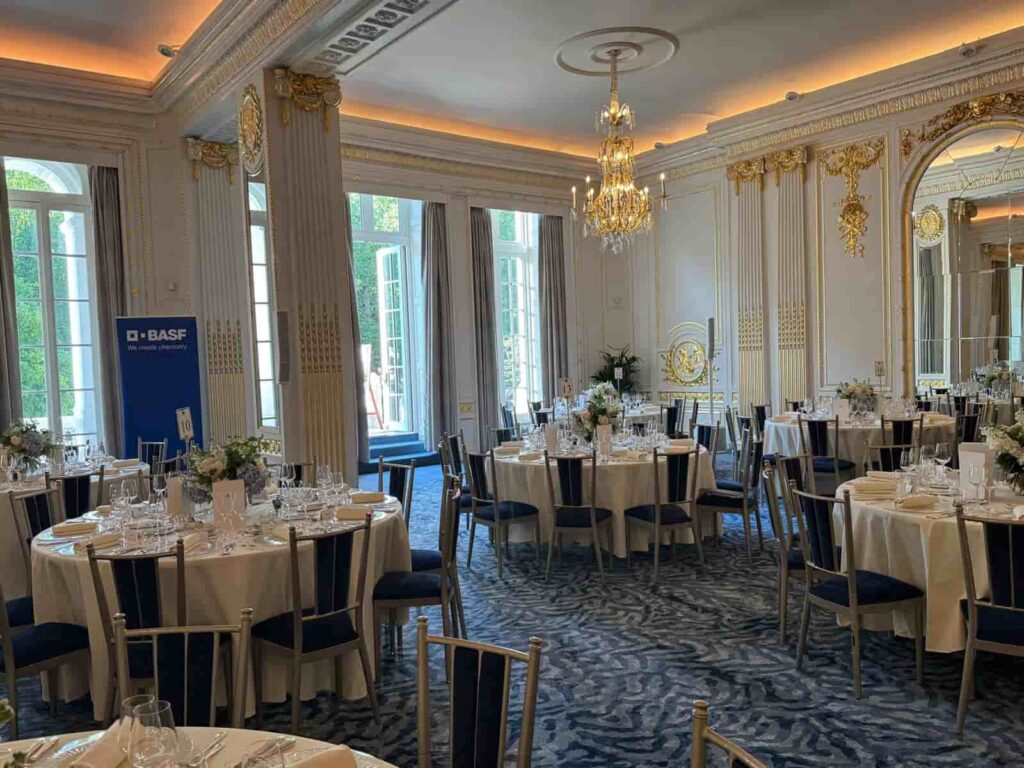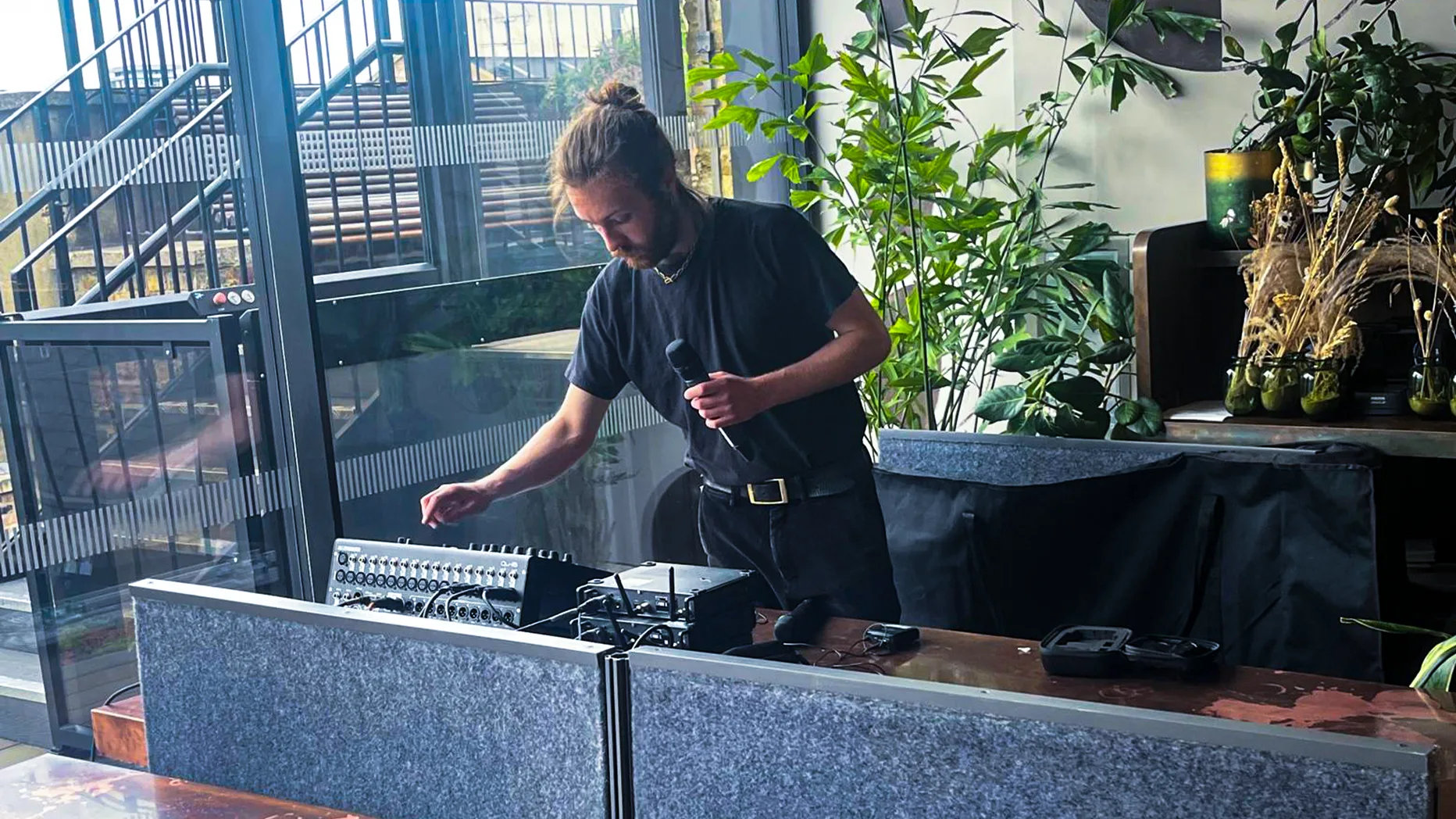Catering isn’t just about feeding people; it’s about crafting an experience that lingers long after the plates are cleared. In the UK, contract catering sales rose by 18% in 2023 compared to 2022. This significant growth shows the increasing value that attendees and hosts place on professional food service at events.
6 Steps to find the best caterer for your event
Whether you are organising a 50-person board meeting or a 500-guest gala, choosing the right caterer can make your event shine. It also saves you the hassle of managing every detail yourself and protects your budget in the process. Good planning starts well before the first canapé is served. This guide will walk you through everything step by step that you need to consider. So you can hire with confidence and delight your guests, let’s get started.
1. Defining your event needs
Before you even approach caterers, it pays to have a crystal clear brief. Defining your core requirements upfront ensures proposals align with your vision. To stay aligned with your event vision, ask yourself:
- Event type and purpose: Is it a formal awards dinner, an outdoor festival, or an intimate networking breakfast?
- Guest count: Confirm the headcount ranges to help caterers scale menus accurately.
- Dietary requirements: Identify vegetarians, vegans, allergies, and cultural or religious needs.
- Service style: Do you envision a buffet, a plated sit-down meal, grazing tables, or interactive food stations?
- Atmosphere and theme: Will the food tie into a seasonal theme, event branding, or unique experience?
Having detailed answers to these questions lets caterers craft targeted proposals and avoid costly last-minute changes.
2. Setting and managing your budget
Knowing your budget range early on helps you filter out options that don’t match and negotiate a better value. In the UK, the average catering costs run around £40 per head. Although simple buffets may start from £15, fine dining plated menus can exceed £75 per person.
When planning your budget, consider the following:
- Factor in hidden fees: Ask about service charges, staffing surcharges, and travel costs.
- Understand deposit terms: many caterers request 20–30% upfront to secure your date, often six to nine months before an event.
- Align payment schedules: Agree on milestone payments and final balance due dates to avoid cash flow surprises.
By aligning your budget with service levels early on, you’ll focus on caterers who can deliver the quality you need at a price you can afford.
3. Checking credentials and food safety
Trust is built on safety and compliance. UK law requires all food businesses to register with their local authority at least 28 days before starting operations. That helps you filter out unreliable vendors from the start.
When vetting caterers, request:
- Hygiene ratings: Verify their Food Standards Agency score online.
- Allergen Procedures: Ensure they follow strict cross contamination protocols for nuts, gluten, dairy, and other common allergens.
- Insurance cover: look for public liability and employer’s liability insurance certificates.
A caterer who can’t produce proof of registration or insurance is an immediate red flag. Prioritise partners who demonstrate rigorous food safety practices to protect your guests and your reputation.
4. Exploring menus and tastings
A menu preview and tasting session is your chance to judge flavour, portion size, and presentation firsthand. Top caterers will
- Offer bespoke menus: Tailor dishes to your theme, cuisine preferences, and guest profiles.
- Accommodate all diets: Provide delicious vegan, vegetarian, gluten free, and halal options without compromise.
- Host in-depth tastings: Sample three to five signature dishes to fine-tune flavours, portions, and service pace.
During the tasting, note plating style, portion consistency, and how chefs adapt to your feedback. If a caterer hesitates to customise or won’t offer a tasting, they may lack confidence or flexibility.
5. Service style and logistics
The way food is served shapes guest flow and atmosphere. Here is a quick comparison of common service styles:
| Service style | Ideal for | Pros | Cons |
| Buffet | Casual and large groups of people. | Variety, self-service, and speed up the flow. | Potential Queues and variable fill. |
| Plated sit down | Formal dinners | Elegant, Controlled portions. | Longer service and higher staffing |
| Canapes & Station | Networking & cocktail parties | Encourages, mingling, and movement. | Requires space for stations |
| Food Truck & Kiosks | Outdoor or themed events. | Unique vibe and relaxed ambience | Weather dependent |
Before you sign any of the contracts with your caterer. Check kitchen access, power and water supply, loading bays, and parking. A detailed site visit is a must, rather than relying on photos, to prevent logistical hiccups.
6. Building trust with clear contracts
A detailed contract is your safety net. So, take time to read every clause carefully before signing. Here are some of the key elements to include in them:
- Scope of work: exact menu, guest numbers, staffing levels, and service duration.
- Cancellation policy: Fees or refund policies, if any changes in the plan happen.
- Liability clauses: Responsibility for accidents, damage, or food safety incidents.
- Payment terms: Deposit amounts, interim payments, and final balance date.
Never rely on verbal agreements. A written contract protects both you and the caterer, ensuring clear expectations and accountability.
Conclusion
Choosing your caterer is more than just selecting menus; it’s about aligning quality, service, and reliability with your event’s goals. By carefully defining your needs, budgeting wisely, verifying credentials, exploring menus, and signing a contract, you will ensure your guests leave raving.
And best of all, you get to enjoy your event with real peace of mind. Now, reach out to your top three caterers, arrange tastings and site visits, and lock in the one that best matches your values.






